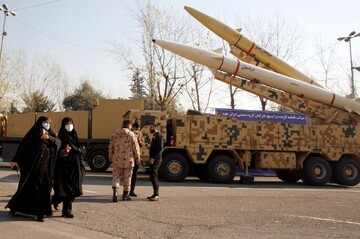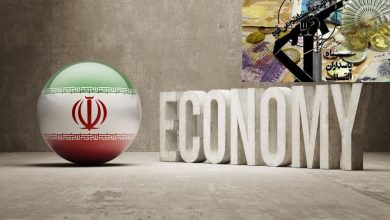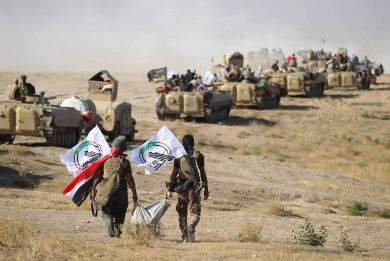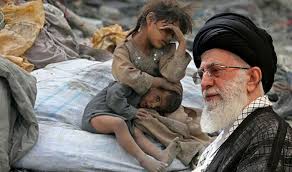The Islamic Revolutionary Guard Corps (IRGC) is a central force in Iran’s political, military, and economic landscape. It has been implicated in numerous destabilizing activities, including supporting terrorism, suppressing domestic dissent, and engaging in cyberattacks. Global responses to the IRGC’s actions have ranged from sanctions and designations as a terrorist organization to military deterrence and diplomatic efforts. While some of these measures have successfully curtailed the IRGC’s operations, others have faced significant challenges, highlighting the complexities of addressing a multifaceted and entrenched organization.
This report examines global responses to the IRGC, their successes and failures, and recommendations for improving strategies to counter its influence.
1. Understanding the IRGC’s Global Reach
A. Multifaceted Operations
• The IRGC operates as a military force, an economic powerhouse, and a political actor, giving it extensive influence both within Iran and internationally.
• Its elite Quds Force oversees extraterritorial operations, including support for proxy militias, terrorist organizations, and regional destabilization efforts.
B. Key Activities
1. Proxy Warfare: The IRGC funds and arms groups like Hezbollah, Hamas, and the Houthis, fueling conflicts across the Middle East.
2. Terrorism: It has been linked to attacks targeting civilians and military personnel globally, often through its Quds Force.
3. Economic Networks: The IRGC controls vast economic sectors in Iran, using these resources to fund its activities.
4. Cyber Warfare: The IRGC engages in cyberattacks on critical infrastructure and spreads disinformation to influence global narratives.
2. Successes in Global Responses
A. Designation as a Terrorist Organization
1. United States:
• In 2019, the U.S. designated the IRGC as a Foreign Terrorist Organization (FTO), the first time an official military branch of a state received this designation.
• This move restricted IRGC-linked individuals and entities from accessing U.S. financial systems and resources.
2. Other Countries:
• Several nations, including Canada and Gulf Cooperation Council (GCC) states, have imposed sanctions or designations on the IRGC and its affiliates.
B. Sanctions
• Comprehensive sanctions have targeted the IRGC’s financial networks, including its control over Iran’s oil exports, construction projects, and front companies.
• Sanctions on key individuals, such as Quds Force commanders, have disrupted their ability to travel and conduct business internationally.
C. Military Deterrence
• Targeted military actions, such as the killing of Quds Force commander Qassem Soleimani in 2020, weakened the IRGC’s operational leadership.
• Naval coalitions in the Gulf have intercepted IRGC weapons shipments, disrupting its support for proxy groups.
D. Cybersecurity Measures
• Nations targeted by IRGC cyberattacks, such as the U.S. and Israel, have strengthened their defenses and launched counter-cyber operations to disrupt IRGC activities.
E. Diplomatic Efforts
• Multilateral forums, including the United Nations, have raised awareness about the IRGC’s destabilizing activities, leading to resolutions condemning its actions.
3. Failures and Limitations in Global Responses
A. Evasion of Sanctions
• The IRGC uses complex networks of front companies, smuggling, and cryptocurrency to evade sanctions and generate revenue.
• Weak enforcement of sanctions in certain jurisdictions allows the IRGC to continue its operations.
B. Lack of Global Consensus
• Key players, including Russia and China, maintain economic and military ties with Iran, undermining efforts to isolate the IRGC.
• Diverging priorities among Western allies often result in inconsistent policies, weakening the overall impact of countermeasures.
C. Regional Challenges
• The IRGC’s proxies, such as Hezbollah and the Houthis, remain deeply entrenched in their regions, making it difficult to fully neutralize their influence
• Ongoing conflicts in Syria, Iraq, and Yemen provide fertile ground for the IRGC’s operations to continue.
D. Propaganda and Disinformation
• The IRGC’s sophisticated propaganda machine spreads disinformation to undermine global narratives, discredit sanctions, and rally support domestically and among its proxies.
• Efforts to counter IRGC propaganda have been inconsistent and often reactive.
E. Humanitarian Impact
• Broad sanctions targeting Iran’s economy have inadvertently harmed ordinary Iranians, creating domestic hardships and fueling anti-Western sentiment, which the IRGC exploits.
4. Case Studies of Global Responses
A. U.S. Maximum Pressure Campaign
• The Trump administration’s “maximum pressure” campaign targeted the IRGC with extensive sanctions and diplomatic isolation.
• Success: Severely restricted Iran’s oil exports and weakened the IRGC’s financial resources.
• Failure: The campaign led to increased regional tensions, with the IRGC orchestrating attacks on oil facilities and shipping lanes.
B. European Engagement Strategy
• European nations have pursued diplomatic efforts to contain Iran’s nuclear ambitions while avoiding direct confrontation with the IRGC.
• Success: Maintained channels for negotiation, including the 2015 Joint Comprehensive Plan of Action (JCPOA).
• Failure: The IRGC has continued its destabilizing activities, undermining the JCPOA’s broader goals.
C. Regional Responses
• Saudi Arabia, Israel, and the UAE have taken proactive measures, including military operations and intelligence sharing, to counter the IRGC’s influence.
• Success: These efforts have disrupted IRGC arms shipments and proxy activities.
• Failure: The IRGC remains a dominant force in Syria, Iraq, and Yemen.
5. Recommendations for Strengthening Global Responses
A. Enhance Sanctions Enforcement
• Strengthen international coordination to track and dismantle the IRGC’s financial networks.
• Close loopholes that allow front companies and third-party intermediaries to evade sanctions.
B. Build a Unified Global Strategy
• Foster greater cooperation among Western allies, Gulf states, and other stakeholders to counter the IRGC’s influence comprehensively.
• Encourage nations like China and Russia to limit their support for IRGC-affiliated entities.
C. Support Regional Stability
• Invest in rebuilding governance and infrastructure in conflict-affected regions like Iraq, Syria, and Yemen to reduce the IRGC’s opportunities for influence.
• Strengthen support for local forces opposing IRGC proxies.
D. Counter Propaganda and Disinformation
• Develop coordinated strategies to expose and counter the IRGC’s propaganda campaigns.
• Support independent media outlets and digital platforms that amplify truthful narratives.
E. Address Humanitarian Concerns
• Design sanctions with humanitarian exemptions to minimize harm to ordinary Iranians.
• Provide international aid to mitigate the unintended consequences of sanctions.
Conclusion
The IRGC remains a central player in Iran’s destabilizing activities across the Middle East and beyond. Global responses, including sanctions, military actions, and diplomatic efforts, have achieved notable successes in curtailing its influence. However, significant challenges remain, including sanctions evasion, regional entrenchment, and propaganda operations. To effectively counter the IRGC, the international community must adopt a unified and comprehensive approach that combines economic pressure, military deterrence, and diplomatic engagement while addressing humanitarian concerns. With sustained efforts, the IRGC’s destabilizing role can be diminished, contributing to greater regional and global stability.
Join Our Newsletter!
Stay informed with the latest updates, news, and ways to take action in the fight for justice and global security. Sign up now to get updates delivered straight to your inbox!





